From Athens to Olympia: Following in the footsteps of ancient Greek civilization
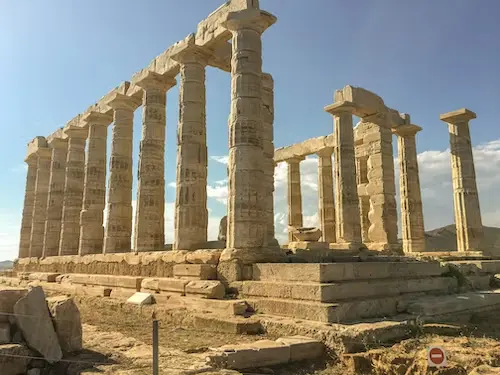
The ancient Greek civilization is considered one of the greatest civilizations that humanity has ever experienced, as it left its deep mark in fields such as literature, philosophy, architecture and sports. This civilization is characterized by its cultural diversity and the multiplicity of its artistic and scientific aspects, and it is a heritage that continues to exert its influence on modern cultures. In this article, we will trace the footsteps of the ancient Greek civilization from Athens to Olympia, by exploring the most important landmarks and masterpieces of art and sports that tell the story of this wonderful civilization.
Show key points
- Ancient Greek civilization left a lasting legacy across various fields including philosophy, literature, architecture, and sports.
- Athens, known as the cradle of democracy, showcases ancient temples, vibrant museums, and historical landmarks that exemplify Greek cultural and political heritage.
- The Acropolis, perched above Athens, is an architectural marvel symbolizing harmony, beauty, and the artistic excellence of classical Greece.
- ADVERTISEMENT
- Greek theatre served as a powerful cultural mirror, blending performance, music, and dance to express societal values, human emotions, and philosophical questions.
- Rooted in Olympia, the ancient Olympic Games promoted unity, sportsmanship, and physical excellence, laying the foundation for today's global Olympic movement.
- Influential philosophers like Socrates, Plato, and Aristotle shaped the course of Western thought through their inquiries into ethics, politics, and science.
- Exploring ancient Greece from Athens to Olympia is a profound journey through a civilization that continues to inspire art, culture, and intellectual pursuit in modern times.
1. Athens: Capital of Greek Civilization
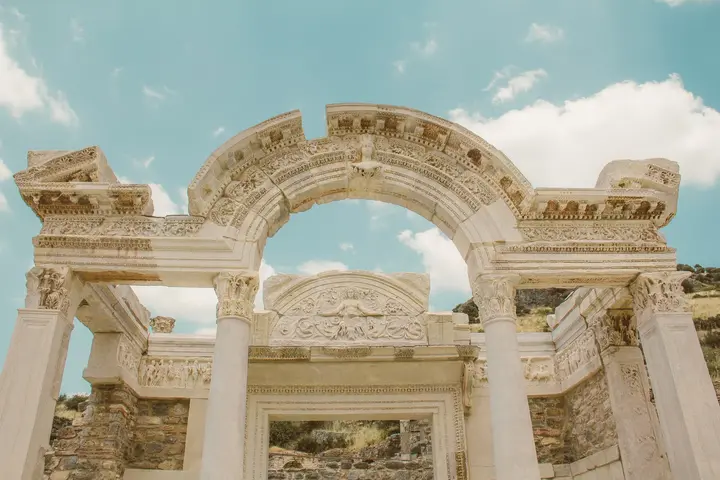
Athens is the magnificent capital of Greece, a modern city center steeped in ancient history. The ancient Greek civilization that flourished in this city was one of the greatest civilizations in the world. The influence of this great civilization is evident in every corner of Athens, where visitors can enjoy beautiful ancient temples, stunning museums and creative street art.
Recommend
In addition, Athens has many wonderful museums that display antiques and antiques. Visitors can visit the Agora Museum, the Museum of Greek Civilization and the Art Gallery to enjoy dazzling artworks that tell the story of Greek civilization and highlight the superiority of its art and culture.
One cannot talk about Athens without mentioning democracy. The world's first democracy was founded in this magnificent city. Athens was a center of political and intellectual dialogue, and a free space for discussion and decision-making. This fascinating period is highlighted in Athens' public squares, where visitors can explore the sites where trials and public meetings were held.
In short, Athens is the jewel of Greek civilization, and Athens is the gateway to antiquity. This great city has an unparalleled history, culture and art, and whatever your interests, Athens will satisfy your taste. Visiting this ancient city is an unforgettable experience that captures the ingenuity of Greek civilization and reminds us of its beauty and grandeur.
2. The Acropolis: an architectural miracle that reflects the Greek spirit
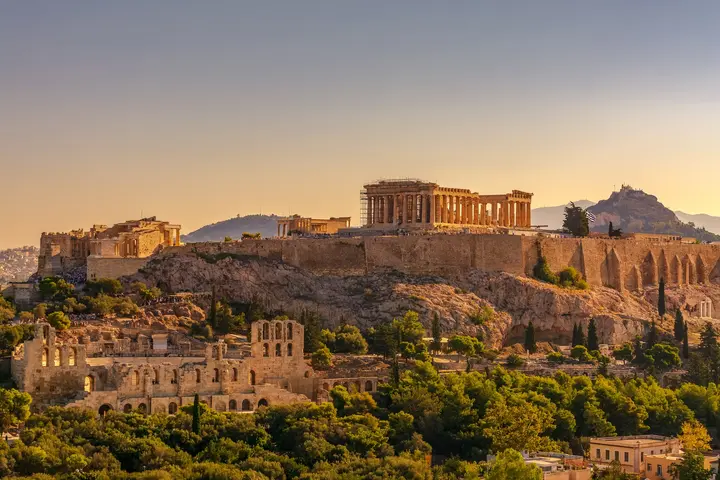
The Acropolis is one of the most important and famous tourist attractions in the world, telling the story of ancient Greek civilization and reflecting its unique spirit. Located in the heart of Athens, it is one of the greatest examples of classical Greek architecture. The construction of the Acropolis dates back to the early fifth century BC, when the Athenians began building this magnificent edifice on top of a high hill.
The Acropolis is masterfully designed to suit the surrounding nature and to be a masterpiece in its own right. The main edifice consists of a group of temples and magnificent sculptures, such as the famous Parthenon Temple, which is considered a symbol of classical architecture. The massive columns and beautiful delicate and archaeological decorations are distinguished by their elegant lines and fine details, demonstrating the skill and professionalism of ancient Greek engineers and craftsmen.
The Acropolis embodied the aesthetic philosophy of the ancient Greeks, who believed that beauty and harmony were the basis of the Greek spirit and thought. The architectural design of the Acropolis is characterized by balance and harmony that emanates from every angle and its details, reflecting the Greek spirit of harmony between nature, culture and art.
A visit to the Acropolis is an amazing adventure in the world of art and history, where visitors can explore its magnificent temples and charming landscapes that surround it. The ancient edifice gives visitors the opportunity to immerse themselves in the culture of ancient Greece and stand on the traces of the civilization that shaped the modern world. The Acropolis is not just an architectural structure, but a masterpiece of great historical and cultural value.
It can be said that the Acropolis is an architectural miracle that reflects the Greek spirit. It is at the top of the list of amazing and amazing tourist destinations in the world, and is a historical gem that cannot be overlooked for any traveler interested in history and culture. So, you shouldn't miss this charming site and enjoy its splendor and eternal beauty.
3. Ancient Greek Theater: A Window on Art and Culture
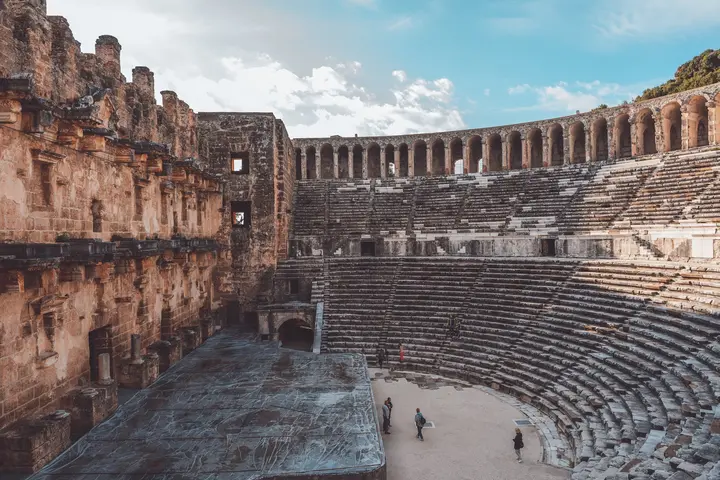
In the world of ancient Greek art and culture, theatre occupies a privileged position as a window into the authentic artistic heritage of this magnificent civilization. Ancient Greek theatre is not just a platform for theatrical performances, but a mirror of the society, culture and philosophy that flourished in that time period.
On the stages of Athens, Olympia and other cities in Greece, audiences would come to see performances that blended poetry, music, dance and free performance, in what is known as the "classical Greek play". These actors were mimicking divine tales, legends and folk stories in an exciting and interesting performance of emotions and events.
Ancient Greek theatre reflects a clear picture of contemporary Greek society, having played an important role in conveying issues, doubts and intellectual inspirations to the audience. Theatre was a place to express spirituality, emotions and understand human complexities, as theatrical characters face challenges and struggles that reflect the reality of life and teach the audience a valuable lesson from it.
The ancient Greek theater was distinguished by its magnificent architectural design, as it was characterized by the presence of a choir (an elevated part around the theater used by actors as a platform for singing and dancing) and memorial houses in the theater in addition to the sound of striking columns that play a strong role in lighting and finding shadows and supporting the general scene of theatrical performances.
Ancient Greek theatre still inspires many artists and playwrights in modern times, as ancient Greek techniques and artistic elements are used in contemporary theatrical performances. It is not just an ancient heritage found in history books, but an oasis of creativity that combines the past and the present and brings a unique spirit to everyday art and culture.
When we remember ancient Greek theatre, we realize that it is not just an entertaining luxury, but a window into the fascinating past and authentic artistic expression of this ancient civilization. Dealing with ancient Greek art and culture helps us deeply understand our human identity and cultural development, and the stories of ancient Greek theatre still resonate in people's minds to this day, evoking inspiration, reflection and emotions.
4. Olympic Games: a symbol of sportsmanship in the ancient world

The Olympic Games are one of the biggest sporting events in the world nowadays, but did you know that their origins go back to the Old World? The Olympic Games were founded in ancient Greece and were considered a symbol of sportsmanship, unity and honest competition between different nations and cultures.
The Olympic Games date back to 776 BC, and were held at a sacred site called Olympia. The Games were held every four years for five days, and were banned by athletes and spectators from all over Greece. The ancient Olympic Games included a variety of sports such as sprinting, jumping, wrestling, boxing, fencing and archery.
The Olympic Games were seen as an opportunity for Greeks to communicate and interact with each other across geographical and cultural boundaries. It united peoples and promoted peace and cooperation among them. The Games provided an opportunity for athletes to showcase their skills and strength, and were considered a great honour for the winners and a tribute to strength and strong will.
The Olympic Games were also part of ancient Greek culture and cultural heritage, accompanied by artistic performances, music, poetry and literature. Games enhanced physical and spiritual abilities, and encouraged continuous improvement and diligence in sports.
In the modern world, the Olympic Games have continued to fulfill their original spirit and continue as a symbol of sportsmanship and global interaction. The modern Olympic Games are the embodiment of global harmony, challenge and solidarity among athletes from all over the world. The Olympic Games are an occasion to celebrate cultural and sporting diversity, and encourage the strengthening of international relations and the peaceful resolution of disputes.
The Olympic Games are a forum that unites the world and brings people together in the spirit of sport and positive interaction. The Olympic Games remain a symbol of hope, excellence and global cooperation in a world that needs values such as peace, tolerance and mutual understanding.
5. Greek philosophy: from Socrates to Aristotle

Since ancient centuries, ancient Greek civilization was known for its intellectual and philosophical superiority. Greek philosophy is one of the pillars of this amazing civilization, contributing to the understanding of the world, life and ethics. This philosophy stems from the heels of brilliant thinkers such as Socrates, Plato and Aristotle, who still have a great influence on modern thinking.
Socrates, the founding thinker, believed that wisdom lies in knowing one side: "I know I know nothing." By asking questions and provoking discussions, he sought to awaken the thoughts of others and realize their lack of complete knowledge. Hence, Plato built on the philosophy of Socrates and introduced many moral ideas and theory of ideas. Plato believed that there is a world of eternal thoughts and truths beyond material existence.
Aristotle was a student of Plato, but added new aspects to Greek philosophy. Aristotle focused on the study of nature and the natural sciences, as well as politics and ethics. He mastered the classification of science and formed the basis of modern science.
Greek philosophy is a valuable legacy of human thought, characterized by depth and complexity. You need analysis and long reflection to fully understand them. However, it remains a starting point for many recent ideas and debates in our society.
Greek philosophy from Socrates to Aristotle is arguably a journey that is a window into a deep understanding of life and the world around us. The questions, questions and debates presented by these ancient Greek thinkers are still of great value in our modern times, encouraging us to think critically and seek knowledge.
Greek philosophy is one of the greatest legacies of ancient civilization, and it inspires us to learn, grow, and question the world and our place in it.
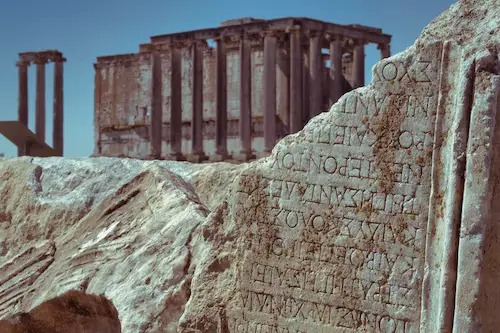
Ancient Greek civilization lived through five centuries of creativity and progress, and it still affects our lives today. The journey from Athens to Olympia gives us a unique opportunity to explore this fascinating and rich heritage, and to savor the beauty of art, culture and sports experienced by the ancient Greeks. In a journalistic tone, this journey is full of adventure, learning and inspiration, where we can reflect on the human ability to create masterpieces that one marvels at over time. So, don't miss the opportunity to explore the footsteps of ancient Greek civilization and experience its story of beauty and grandeur.








